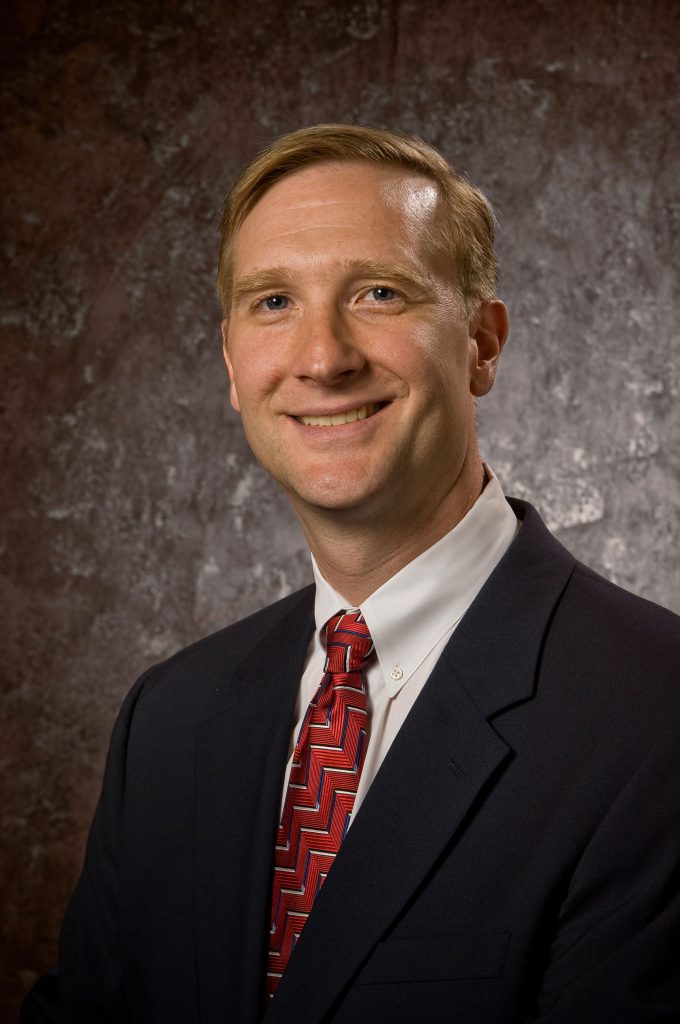
Christopher Preble agrees with both Democrats and Republicans. He believes Donald Trump, as a candidate, made strong points about America’s inconclusive, open-ended wars but thinks that President Trump’s policy proposals after he was elected president have been inadequate.
Preble is the vice president for defense and foreign policy at the Cato Institute, a libertarian think tank based in Washington, D.C. He’s also the author of “Fuel to the Fire: How Trump Made America’s Broken Foreign Policy Even Worse (and How We Can Recover).” Next Tuesday, Preble will speak at the Overby Center about his new book and how scholars at the Cato Institute are offering foreign policy alternatives that are neither a rejection of Trump nor a modification of policies prior.
“Donald Trump has definitely shaken up the foreign policy debate (and most other debates, for that matter),” Preble said. “We thought it important to separate Trump’s critique of foreign policy from Trump the person and the Trump administration’s policies, which don’t always line up.”
This is Preble’s first time speaking on a college campus. He said the message of his book and subsequent conversation should resonate with all Americans.
“Americans are frustrated by our foreign policy and often feel powerless to do anything about it,” Preble said. “We think their concerns should be taken seriously.”
Preble added that the United States has strayed far from its foreign policy roots under George Washington, but the Cato Institute is striving to offer alternative policy options that reduce, among other things, the use of force.
“We should be an example of democracy and human rights, not their armed vindicator abroad,” Preble said. “Although that view is largely absent in Washington, D.C., today, Cato scholars aim to restore it. A principled and restrained foreign policy would keep the nation out of most foreign conflicts and be cheaper, more ethical, and less destructive of civil liberties.”
The Ole Miss chapter of the John Quincy Adams Society, a foreign policy club, is hosting Preble’s event. The group, which sponsors one large-scale event each semester, held a panel on the Arab Spring with three university professors last semester.
Wills Hay, president of the society, interned at the Cato Institute this summer. Because of his work with Preble, he was able to bring Preble to Ole Miss for this event, which Hay said will give students an opportunity to talk to a foremost expert in a political forum.
“This is a great opportunity for people to hear from a professional in the field, to ask questions from someone they would otherwise not be able to get in front of,” Hay said. “So, as eager as I was to get Dr. Preble down here, he was just as interested in spreading his opinion, his views on foreign policy and what’s going on right now, with students.”
Preble said that while he finds himself agreeing with people on the political left and right, he does not define policies by which party enacts them. He mentioned solutions the U.S. could take to improve its foreign policy.
“U.S. foreign policy has come to rely too much on the use of force,” Preble said. “U.S. leaders should stop trying to dominate the world militarily and should encourage other countries, including longtime U.S. allies to do more in their respective regions. This doesn’t mean turning away from the rest of the world. On the contrary, we need greater global engagement through mutually beneficial trade and cultural exchange.”
Preble said that the United States could learn something from its sixth president. Adams, who drafted the Monroe Doctrine, advised European powers away from further colonization and conquest in the Western Hemisphere and said that the United States would stay out of European wars. Preble alluded to an 1821 Independence Day speech Quincy Adams gave that elaborated on his foreign policy stance.
“Adams famously explained that a wise foreign policy would not go ‘abroad in search of monsters to destroy,’ but equally important, the United States would promote liberty by the power of our example,” he said. “It is a message that should still resonate today.”
The event will be held Tuesday, Nov. 5 at 5 p.m. in the Overby Auditorium and is open to the public.



























